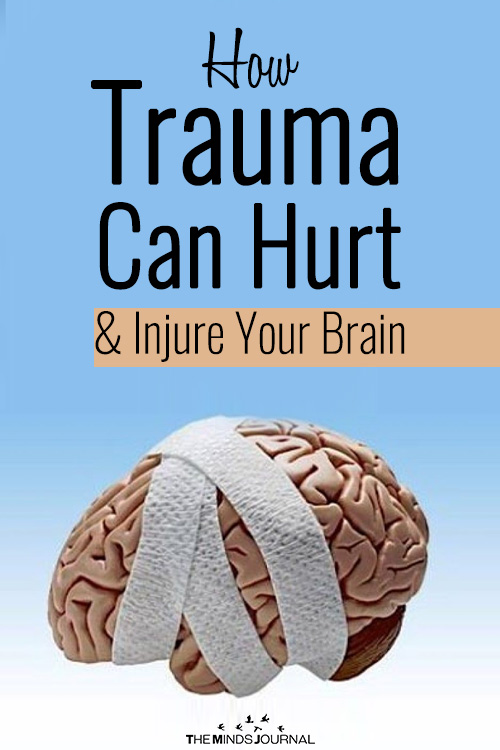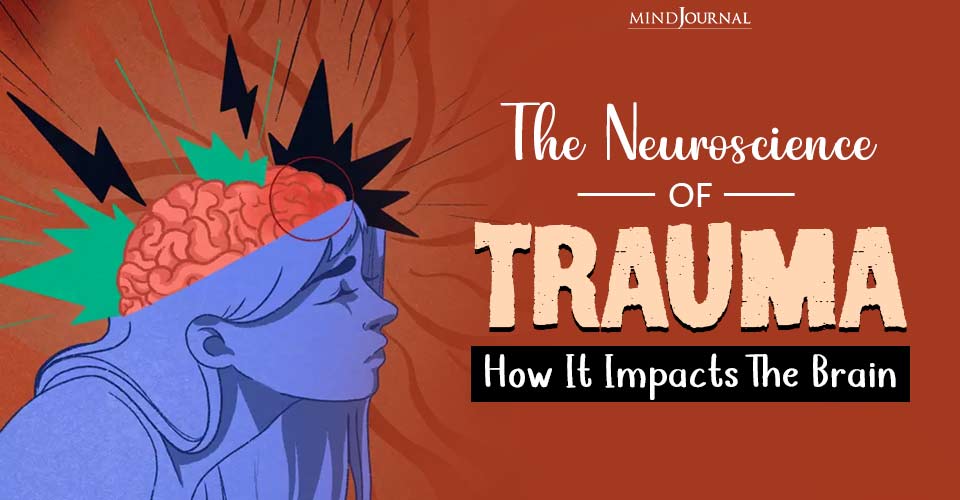Trauma can hurt your brain and can cause serious damage to it, depending on the gravity of your injuries. In this article, we are going to talk about how trauma can injure your brain, how to identify the signs, and how you can keep yourself safe.
Traumatic brain injury is a result of a violent blow to the head or to the body. Objects that pierce the skull and penetrate brain tissue can also cause traumatic injury.
The consequences of a fall, accident, or injury can lie dormant for years, rearing the ugly symptoms when life experiences trigger this traumatic memory once more.
How Trauma Can Injure Your Brain
Mild injuries can cause minor inconveniences, after which the brain attains a state of health and homeostasis once more.
Severe injuries can result in bruising, torn tissues, bleeding, and physical damage to brain tissue. These severe injuries can result in long-term cognitive damage, physical consequences, and even death.
Related: Can Trauma Cause Memory Loss? Understanding The Link Between The Two
Symptoms of brain trauma
Signs and symptoms of mild brain injury include:
- Loss of consciousness for a short time
- Confusion, disorientation
- Headaches
- Nausea
- Fatigue
- Speech difficulties
- Difficulty sleeping
- Sleepiness, drowsiness
- Dizziness, loss of balance
- Memory issues
- Mood swings
- Depression and anxiety
More severe injuries have the following symptoms:
- Loss of consciousness for an extended period of time
- Severe, debilitating headaches
- Uncontrolled vomiting
- Convulsions, seizures
- Dilated pupils
- Clear fluid draining from the nose or ears
- Inability to regain consciousness
- Weakness in extremities
- Loss of coordination
- Profound confusion
- Agitation
- Slurred speech
Head and body trauma are not to be taken lightly, as these consequences can worsen over time and a person could developmental and emotional changes that are permanent as a result of the brain struggling to find balance once more.
In order to move past the incidents of trauma that occur in our lives, we must know how to heal the brain.
Related: 30+ Interesting Facts About PTSD
Cognitive training: The next revolution in brain healing?
A new study now shows that cognitive training classes—-teaching or assimilating new information and critical thinking skills, can strengthen synapses in brain tissue and help to repair areas of damage associated with trauma.
More research is projected into the how and why of cognitive training, and what results point to in terms of healing our miraculous brain tissue.
More resilient than we think
Despite the fact that we are bumped, bruised, pushed, and smacked into objects on a regular basis, our gray matter is quite resilient in terms of healing itself. With 2.8 million Americans reporting some type of brain injury each year, over 90 percent report no long-term, lasting effects as a result of their trauma.
When a brain injury results in long-lasting damage, like depression, anxiety, or symptoms of PTSD, these can be alleviated with the use of cognitive thinking therapies.
How cognitive thinking therapy works
Participants in cognitive thinking therapy are taught skills such as abstract thinking, learning to focus, and memory strategies for retaining information. They are required to perform exercises, participate in social interactions with others, and receive feedback on their progress.
The goal of cognitive therapy is to thicken the cortex and stimulate the development of neural connections that will lessen symptoms like anxiety, depression, and memory and concentration issues.
Brain scans of participants who have undergone cognitive thinking/processing therapies showed remarkable improvements in the development of the neuro-network of connections between the left and right hemisphere of the brain, and an overall improvement in the look and function of the pre-frontal cortex, known to help regulate mood and alleviate symptoms of anxiety and depression.
With this solid evidence in place, it seems that cognitive processing techniques should become a regular part of the TBI healing protocol.
Related: Yoga Therapy: Benefits for Trauma Treatment and Mind-Body Wellness
An ounce of prevention…
While the research on cognitive processing is promising, learning to assess situations and reduce risks for traumatic brain injury is the best course of action to keep your brain healthy.
How do you reduce your risk of experiencing brain injury?
Here are some ways that you can reduce your risk of sustaining such an injury:
- Always wear a seatbelt when riding in a motor vehicle
- Don’t drive or ride with someone under the influence of alcohol or drugs
- Don’t use a cell phone while driving
- Wear a helmet in situations where there is a risk of sustaining head injuries
- Prevent slipping and falling at home
- Learning to assess situations and reduce risks of head injuries in children
The more research is done on the brain and its inextricable link to our physical, mental, and even emotional health, the more critical it becomes that we protect this valuable organ and safeguard it against injury.
Doing your part to educate yourself on the risk factors that exist in your daily life and recognizing the signs and symptoms of brain injury will result in a healthier, happier life for you and your whole family.
Want to know more about how trauma can injure your brain? Check this video out below!











Leave a Reply